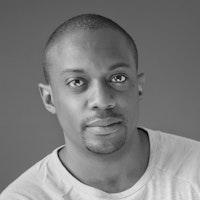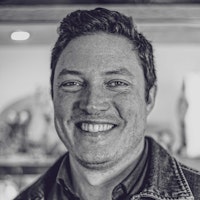
Show Notes
Creativity is as intrinsic to our species as any of our basic instincts, says Debbie Millman, designer and curator. But for millions of people in the United States, the ability to create has been thwarted. This basic human need, as important as love and shelter, Millman says, isn’t available for people serving time at the nearly 2,000 correctional facilities across America. In this discussion, moderated by Millman, a group of artists and activists share how they’re working to bring creative outlets to people who are incarcerated. Turns out ushering creativity into these dark and lonely spaces not only increases hope for the incarcerated, it makes our country safer. Common, a hip hop artist and actor, launched the nonprofits Imagine Justice and the Common Ground Foundation. Hank Willis Thomas is a conceptual artist who co-founded For Freedoms. Claudia Peña is an artist and founding co-director of the Center for Justice at UCLA. Michael Murphy is an architect, artist, educator, and writer. This talk was recorded at the 2024 Aspen Ideas Festival.
Explore
Related episodes


Millions of children across America don’t have art classes in school and don’t grow up going to art museums and galleries. They might be hours away from the closest museum, or their families might not have the means to bring art into their lives. Philanthropist Alice Walton had that kind of childhood, and wants to prevent as many people as possible from repeating it.


Scholars are still uncovering information about Britain’s involvement in the transatlantic slave trade and its era of slavery, piecing together how the wealth generated from these atrocities shaped the nation’s history. For some descendants, this means just now learning about their families’ roles in and benefits from these horrors. Where do we go from here, and what would...


Many more Americans are struggling to survive and make ends meet than is typically portrayed in the media and public policy debates. And when poverty is depicted, harmful and inaccurate stereotypes often contribute to divisiveness rather than sympathy. Outdated measurement systems and unrealistic living standards have artificially kept U.S. poverty rates low over the past...


America’s “second founding” came on the heels of the Civil War, when the architects of the 13th, 14th and 15th amendments thought long and hard about how to enshrine civil rights that were truly for all into the U.S. Constitution. Despite an immediate backlash, including from the Supreme Court, and repercussions we’re still dealing with today, that second generation of fra...


The stories we hear about migrants trying to escape difficult circumstances tend to focus on hardship, conflict, statistics and policy. We rarely get a deep look at any of the people risking their lives to cross the U.S. border or take a boat to Europe, and we don’t get to know or understand them as fellow humans. Writer Javier Zamora came to the U.S. when he was nine year...











